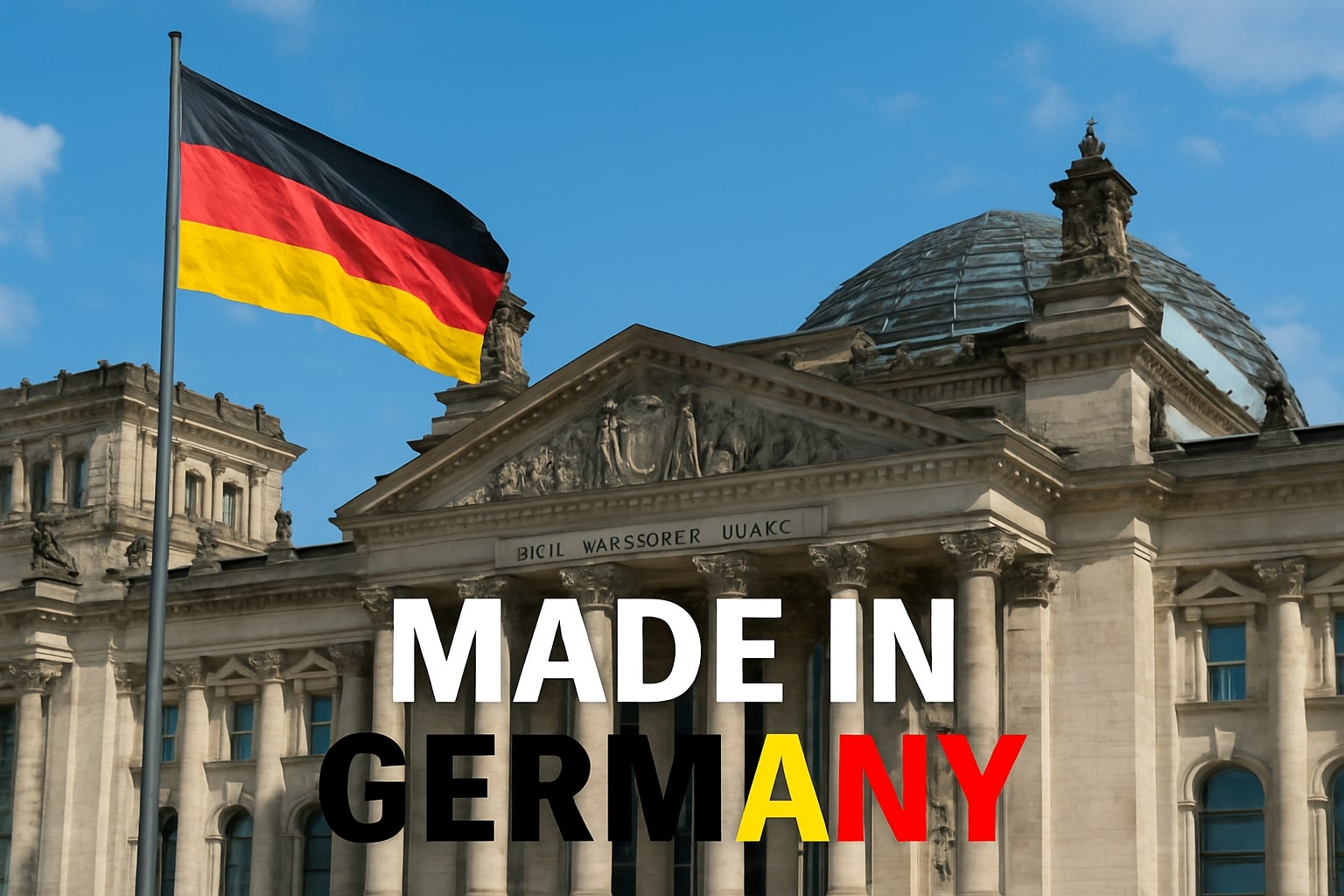In a sweeping vote of confidence aimed at jolting Germany’s stagnating economy back to life, more than 60 of the country’s top corporations have committed to investing over €100 billion in new projects by 2028. The initiative, coordinated with Chancellor Friedrich Merz’s administration, marks one of the most ambitious private-sector investment drives in recent years — signaling renewed optimism in the future of Europe’s largest economy.
Massive Investment Plan to Signal Confidence
The new drive, titled “Made for Germany”, brings together industry giants like Deutsche Bank and Siemens alongside small and mid-sized enterprises. The total investment figure — €631 billion — combines both fresh capital allocations and already planned spending. This includes expenditures on research and development, infrastructure, and international investor commitments.
The initiative comes in response to years of sluggish growth and capital flight, with hundreds of billions of euros in outflows since the pandemic. It is intended to send “a strong, positive signal” to markets and policymakers, the participating companies said in a joint statement on Monday.
Mr. Sewing: Time to Reclaim Growth and Competitiveness
“We all strive for the same goal: to finally bring back growth and competitiveness to Germany and Europe,” Deutsche Bank CEO Christian Sewing told Bloomberg TV, underlining the need for a business-led revival. Sewing emphasized that increased private-sector investment is essential to ending three years of stagnation and restoring momentum in core sectors such as automotive, chemicals, and machinery.
“If growth returns to Germany, it’s good news for all of Europe,” he added, expressing hope that more investment announcements would follow in the coming months.
A Broad Coalition of Industry, Startups, and Finance
Siemens CEO Roland Busch highlighted the diverse nature of the effort, which spans large corporations, banks, innovative startups, and Germany’s renowned “hidden champions” — mid-sized companies known for global excellence in niche sectors.
“They’re all ready to put capital to work in a country whose innovation potential we believe in,” Busch told Bloomberg, speaking alongside Sewing. “With the talent we have, we can drive this to the next level.”
Government Backing and Policy Reform Promises
The investment plan is closely tied to the reform agenda of Chancellor Merz’s ruling coalition, which came to power in May. The alliance between his conservative bloc and the Social Democrats, led by Finance Minister Lars Klingbeil, has pledged to cut red tape, reform labor laws, and ramp up public investment to modernize Germany’s ailing infrastructure.
Later on Monday, corporate leaders behind the initiative were set to meet the Chancellor, Klingbeil, and Economy Minister Katherina Reiche at the chancellery to officially present the plan and deliver joint statements.
The government has also committed to up to €500 billion in debt-financed public investments, along with major increases in defense spending to address security threats from Russia and meet NATO expectations, particularly those voiced by former U.S. President Donald Trump.
Economic Outlook Brightening Amid Business Optimism
The announcement comes ahead of second-quarter GDP data, which may confirm another economic contraction. Yet there are signs of a potential turnaround. According to S&P Global Market Intelligence, German firms are more upbeat than they have been since early 2022 and are planning to boost investment for the first time in two years.
S&P’s June German Business Outlook noted a significant shift: more companies now plan to increase capital expenditure and R&D than those expecting cuts — a positive indicator for recovery.
Looking Ahead
Despite broader global economic headwinds and market uncertainties, the fresh wave of private-sector investment is designed to reaffirm confidence in Germany’s industrial strength, innovation capabilities, and long-term economic competitiveness. Business leaders and policymakers alike see this as a crucial step toward revitalizing growth and positioning Germany as a resilient, forward-looking economy in the years ahead.
As Deutsche Bank’s Sewing put it, “We believe this is just the beginning.”【Bloomberg】



